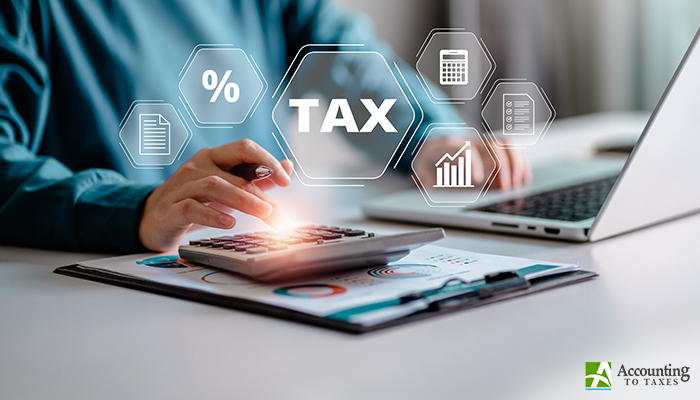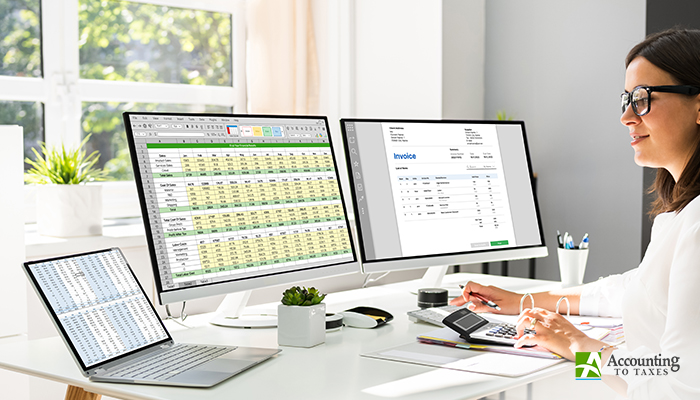Admired are those who have started and been smoothly operating their business in this exceptionally competitive time when everyone is coming upfront as an entrepreneur. While business growth brings contentment to owners, business tax filing brings responsibility along with a load of paperwork.
When you plan to pay your business taxes, there are different ways you can follow to file it, depending upon your entity, such as a c-corporation or you are a sole proprietor of your business.
There are different tax filing forms for each type of entity on which owners need to report the income and expenses of their business. Despite the form you would use, your taxable business income is generally calculated in similar ways.
Even if you have a team of accountants that manages tax return preparation for your company and files it, understanding the taxation process and ways to save tax is important to run your business smoothly. Read through this article as it covers everything, you must know before filing taxes for your business.
Business Structures, Income Tax Forms, and Rates
The type of your business organization literally determines the income tax return form you will have to file. Following are the most common forms of business:
- Sole Proprietors
As a sole proprietor, you need to report business income and expenses on your personal income tax return; profits from the business will be taxed at the applicable rate of personal income tax. However, you must file self-employment taxes as this would cover your social security and medicare obligations.
- Partnerships
In case you’re running a company in partnership, your company requires filing Form 1065, which includes reporting the income, expenses, profits, and losses from the business. Here, tax is applied to the incomes of each partner individually instead of applying corporate tax rates on the company’s income.
- C-Corporations
If your business comes in the category of C-corporation organizations, your company and you are liable to pay taxes separately. The income tax rate for C-corporations starts at 21%. Form 1120 is the primary income tax form for businesses in this category.
- S-Corporations
Similar to sole proprietors and partnerships, S-corporations can be called as pass-through entities. Each shareholder requires to report business losses and income on their personal tax return form as profits will be taxed at the applicable personal income tax rate. In this case, your company will only file an informational tax return – Form 1120S and not pay a corporate tax.
Accurate Tax Preparation is a Mandate
Preparing and filing tax returns accurately on time makes your business less likely to face an audit. Audits are often very costly and time-consuming. Also, if you prepare your taxes hastily without knowing enough about the tax legislation, you possibly miss out necessary deductions that apply to your company. With this, you may be levied with more tax than actual. Therefore, it is mandatory to prepare your taxes accurately which will also help you to:
- Avoid Audits
While IRS can attempt an audit randomly on any company at any time, correctly filing the taxes within the due date decreases the possibility of red flags that are responsible for costly tax audits.
- Save Money
By preparing and filing your taxes accurately on your own will be able to save the money you would spend on getting your taxes prepared and submitted by someone else. All you need is to be well-informed about tax norms, your financial records, and have basic knowledge of operating computers and the internet.
With e-file options, you can easily file your tax returns online. Adding to this, there are some tax preparation software which have made the entire tax filing process easier than ever if all this is done on your own, you save money that you can use on other essential operations.
- Get Your Money’s Actual Worth
If you’re not concerned about spending some money, another thing you can do is hire a financial consultant or tax preparer. Of course, they will ask for some fees, but you will get your money’s actual worth.
Moreover, you can rest assured about the accuracy in your tax preparation as professionals will handle it. Apart from that, in case your company faces an audit, the hired tax preparer will represent you and defend your case.
Must Know the Following Things before Filing Business Tax
1. Report Your Write-offs
Write-offs are one of the smartest ways to decrease your taxable income and save money. Sole proprietors, C corporations, LLCs, S corporations, and partnerships are all eligible to claim there itemized deductions. However, rules may be slightly different for some deductions. Following are some of the most common tax write-offs which you should know:
- Mileage
If you use any vehicle for business purposes, you may deduct those expenses which are incurred to use the vehicle. You can deduct your mileage at 58 cents per mile. It is recommended to properly maintain your mileage log to support your claim, in cases.
- Meals
You probably take your vendors or clients to dinner at times. The Tax Cuts and Jobs Act has removed entertainment expenses, but meals can still be write-off at the rate of 50%.
- Insurance
Insurance policies of owners, flood insurance, business interruption insurance, malpractice coverage, and cyber liability coverage are all fully deductible.
- Travel
In case you or your employees need to travel out of town for business purposes, transportation and lodging costs can be fully deducted.
- Interest on business indebtedness
If you are paying interest on loans taken for your business, as a business expense, it is fully deductible.
2. Maintain a Proper Balance Sheet
Accurately organize a balance sheet of your profit and loss statements to provide details on your income and expenses. This should reflect your company’s assets, equity, and liabilities. It is essential to have an efficient bookkeeping and payroll system to ensure the accuracy of these records.
Adding to this, you can also use tax preparation software, such as TaxSlayer, UltraTax CS, TurboTax, and ProSeries. All these make the entire process easier.
3. New Changes in Tax law
This is something you should be aware of. You need to stay updated with all the changes done in the Tax Cuts and Jobs Act. One of the significant changes is the deduction of 20% for pass-through businesses. Now you can deduct 20% of your company’s income from your personal taxes. This applies on sole proprietors, s corporations, LLCs, and LLPs.
4. Take a Review on Statements
Before preparing the tax return, review your bank and credit card statements to ensure that you don’t skip a deductible expense that was not properly included in. Check the statements and look for large amounts, and make sure each amount is mentioned as an expense in the income statement. Rectify all mistakes and prepare a new income statement before filing your taxes.
5. Important Credits
If you make changes to your business for better, for instance; purchasing, installing, and utilizing equipment that are energy efficient and more environmentally friendly, you can take advantage through tax credits. Here’s an example; the Business Energy Investment Tax Credit provides you credit if you adopt energy-saving methods in your business, such as solar energy panels and fuel cells. Apart from this, you may be eligible for a tax credit for investing in research and development operations for your business.
6. Detailed Information on Income and Investment
Before you start to fill the applicable tax return form, make sure you have all the below-mentioned information in hand.
- Income statements
- List of expenses on investment
- Dates of investment
- Total investment for any stocks or property
- Award money
7. Keep Important Documents Ready
It is essential to keep your important documents maintained and safe. Documents including your social security number, salary slips, account and credit card statements, investment statements, invoices, profit and loss reports, along with all other important documents should be checked for accuracy and ready in hand before you start preparing your taxes.
Recommended: Top Business Tax Challenges in 2018 and Effective Solutions To Them
Conclusion
While preparing your business tax return, all you should be concerned about is the authenticity of all the details you provide and the accuracy of financial data. Adding to this, keep in mind that you must file the tax return before the due date to prevent additional penalties. Filing tax might become difficult for you if you don’t have good knowledge of how finance and accounting operations are carried out. Therefore, it would always be better to have a tax expert on your side for your business tax preparation and related tasks.









